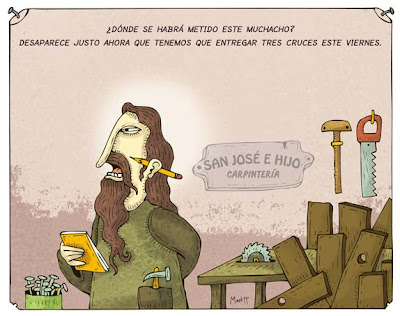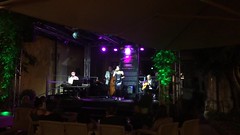Wow. It’s only two days in the Connectivism course and there are already over 400 discussion threads in Moodle Forums. Some are very compelling, some of course are not. One person has caught the attention of fellow participants over some (I believe) useless polemics, using some strong attitudes. C’est la vie. At a time I have been on the verge of replying (Siemens did so early), but then, a couple of hours later, I realized I had not the force (let it be with you!) to read through such a long thread. I decided then it was pointless. Then I received a comment on Moodle and OS attitudes, and at that point I knew I was doing well. Let it be.
I have exchanged a few lines with some people. This has been the most beautiful “discovery” up to now. Such great people: compelling! Many varied interests, from meditation to e-learning, to dyslexia. Many interdisciplinary thoughts. I have subscribed to a social network for Spanish-speaking people: Conectivismo, which is done with ning (and so I am getting an opportunity to check it!) and I began reading other fellows’ blogs. Amazing: I had to stop if I wanted to teach my own classes, today! I might even register at an Italian group, if it appears!
Tomorrow it’s elluminate day, and I’m looking forward to that presentation. I like the organization of the course, its timeline, its wiki (an annotated syllabus) and blog/portal. I wonder if that all would have been perhaps less disperse if it had been all inside Moodle. This way though, I feel we get a grasp on the interconnection among diverse tools. I hope George and Stephen won’t be too creative with assignments and readings, though :-)!
I’m confident that likely, the most important thing to emerge from this course (I’m using the verb to emerge carefully) will be the organization of the information flow among people, their work and their interest in the course. Connections will be created between deep ideas and passionate interests, as Papert said. We’ll get a powerful idea of the tools which do shape our territory, a land of Web and virtual and real terrain. And which shape the need to change the state of the art in education, from middle school to Master’s degrees (I think the only very successful real-life models we have are those at the elementary level -supported by rigorous and powerful research, and the PhD level -inspired in the apprentice-workshop model of yore). I think these emerging self-organizing structures (of course, helped by the two conveners) will inspire us in the future (and perhaps give us hints on Connectivism Theory).
Anyhow, I read through some of the papers for this week, and I liked the comparative table on learning theories and connectivism (in Siemens: What is Connectivism?). I have a few remarks, which perhaps I’ll post in the Forum, regarding the question “What then, do we find to be distinct about connectivism?”
1. George Siemens states that other theories “fail to account for the expansion and creation of knowledge”, citing the “learning paradox” (how does one construct cognitive structures which are more complex than the ones one already owns?). I am not that convinced by this token. There is a change of state in neural nets (change of shape and connections) when learning. In machine learning we can have incremental construction of knowledge -hence an expansion. It is not clear to me if then this incremental buildup allows “reflexive” leaps -more complex cognitive structures- or not: parts of one structure reflecting on itself. However, research has shown that when “enough complex”, a system may generate emerging properties: so this may help explain these “higher-level cognitive structures” being created.
2. Another issue is that I am not sure that it is so important to investigate the “micro” level of learning and transport that model (a networked model) onto the macroscopic world. Caution! However, the networked connectivist model is certainly very appealing!
3. I agree then with the primacy of the connection!
4. Another issue: “how can existing theories of learning assist us in embracing information as a continual process, rather than an event?”. I guess this means that we should be assisted in a continuous process of information embracing, as opposed to a discontinuous one (an event). This is probably the most interesting question for the moment, as I wrote above. Also the one with a most high likelihood to be answered within this course. Interesting enough, it may be that the “machine” (union of us participants, plus George & Stephen, plus the information infrastructure + the Web + the networks etc.) is learning (and using us!), and that as a system **it** will have found some answers by the end of the course!
4. “But it’s difficult to ignore technology”. Well, it is impossible. Not only so: technology **is part of the equation**, so it cannot be removed. Technology shapes us (and our learning) as we shape it. Postman would agree: technology does not **only** open new doors. It builds them too. It is there, simply. Isn’t it true we wouldn’t ignore pencils? Or language? Why should we ignore the Web, or the Web 2.0? Of course, some people will embrace new tech as soon as it is born, and salute it as the salvation (of the world, of education, or of the climate change). So, inevitably, new tech will disappoint. The Web, however, is **not** only a technology: it is a technology and an infrastructure: a territory.
Hope I got some clarity in what I wrote. I have to post it just **before** midnight (GMT-4)… Goodnight, thanks to George and Stephen for this extraordinary opportunity!




